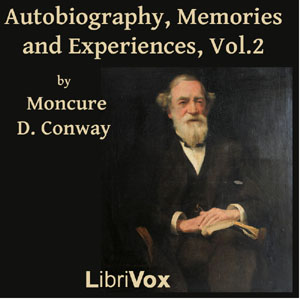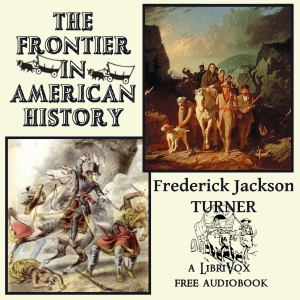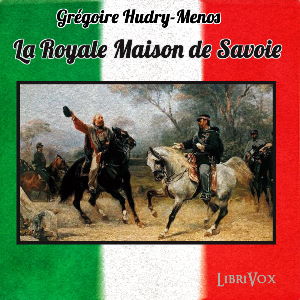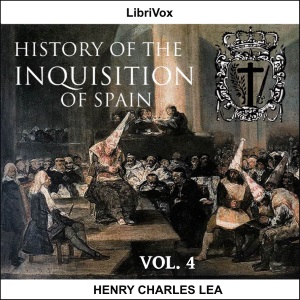The history of New York City is told as a story, in few words. It begins with Henry Hudson's discovery of Manhattan in 1609. And it finishes in 1898 when the island of Manhattan becomes the Borough of Manhattan of Greater New York. (Summary by Guero.)
41 episodes
Coleção de discursos famosos, traduzidos para o português ou escritos em português.
12 episodes
A book that examines the sign of the Cross made by Christians since the primitive church up until the 19th century. It looks at stories of miracles and the writings of the father to impress upon the reader the need to make the sign of the cross reverently and frequently. (Summary by dom. Noah Moerbeek CPMO)
23 episodes
A sketch of the lives of some of America's early Statesmen: George Washington, Benjamin Franklin, Thomas Jefferson, Alexander Hamilton, Andrew Jackson, Daniel Webster, Henry Clay, Charles Sumner, Ulysses S. Grant, and James A. Garfield. (Summary by Barry Eads)
20 episodes
This biography is actually a series of essays by prominent personalities of the time that shed light on John Stuart Mill's life and areas of endeavor. Those areas include his experiences in India House, his moral character, certain botanical explorations, how effective he was as a critic, studies in morals and the law, and discoveries concerning political economy. They also explore ideas concerning his influence on institutions of higher learning, accomplishments as a politician, and fame as a philosopher. (Summary by Bill Boerst)
13 episodes
The First Anglo–Afghan War was fought between British India and Afghanistan from 1839 to 1842. It was one of the first major conflicts during the Great Game, the 19th century competition for power and influence in Central Asia between the United Kingdom and Russia, and also marked one of the worst setbacks inflicted on British power in the region after the consolidation of British Raj by the East India Company. (Summary by Phil)
11 episodes
Moncure Daniel Conway was an American abolitionist, Unitarian, clergyman and author. This second volume of his autobiography covers the years from the US Civil War to roughly 1904. (Summary by JoeD)
45 episodes
The Legends of Genesis is the English translation of the introduction to Gunkel’s massive commentary, Genesis. Gunkel uses form critical analysis on the text of Genesis to determine the various genres of the biblical legends and their significance to the authors. Gunkel also uses form criticism to uncover buried clues as to the constituent sources of the text. Gunkel offers his hypothesis to explain how the various sources came to be combined and redacted, and how the text later came to be attributed to Moses. (Summary by JoeD)
9 episodes
An alphabet of historical characters presented in poetical form! In their original form, the contents of this
book appeared in the Chicago Sunday Tribune, which newspaper is hereby thanked for the privilege of reproducing this Alphabet
(Summary from the Acknowledgment and Ann Boulais)
Who frets about the mystery
Enshrouding all of history
On reading this will, maybe, see
We've made it plain as A, B, C.
26 episodes

The full title of this book is Bible Defense of Slavery; and Origin, Fortunes, and History of the Negro Race, by Rev. Josiah Priest, A. M. 5th edition.
This is a compilation of pro-slavery literature and propaganda that went through numerous editions in the Southern United States before the Civil War. It contains the highly influential book, Slavery, as it Relates to the Negro, or African Race, by Rev Josiah Priest, which was originally published in 1843. This compilation also includes many essays and favorable reviews of Rev Priest’s book from contemporary magazines and newspapers, and written endorsements from national politicians.
From the preface: ‘The question, “Is slavery, as it exists in the United States, justifiable?” is one which, at least, admits of discussion. If it be in harmony with the immutable principles of truth and justice, and not a “crime against humanity,” and a libel upon our holy religion, let it be so understood and practiced by our honest citizens, whose highest ambition consists in faithfully serving God, and living in obedience to the laws of the country.’ (Summary by JoeD)
47 episodes
Knowing the Egyptian as I know him, I cannot but think that he is greatly misunderstood, even by those who are sincerely anxious to befriend him. His faults and his failings are to be found at large in almost any of the scores of books that have of late years been written about him and his country; but, though not a few have given him credit for some of his more salient good points, yet none that I have seen have shown any just appreciation of him as he really is. (From the Preface)
22 episodes
Ulysses S. Grant was the great hero (for the North) in the Civil War and the 18th President of the United States. This short biography is only 145 pages in a little pamphlet size. The author is famous for his stories of the Old West, but he also wrote a substantial body of nonfiction literature. (Summary by David Wales)
9 episodes

Fifty years ago the word “Byzantine” was used as a synonym for all that was corrupt and decadent, and the tale of the East-Roman Empire was dismissed by modern historians as depressing and monotonous. The great Gibbon had branded the successors of Justinian and Heraclius as a series of vicious weaklings, and for several generations no one dared to contradict him. Two books have served to undeceive the English reader, the monumental work of Finlay, published in 1856, and the more modern volumes of Mr. Bury, which appeared in 1889. Since they have written, the Byzantines no longer need an apologist, and the great work of the East-Roman Empire in holding back the Saracen, and in keeping alive throughout the Dark Ages the lamp of learning, is beginning to be realized. (Wikipedia)
Oman starts with the arrival of Greek traders to establish a colony and ends
"So the cry that God was great and Mohammed his prophet rang through the dome where thirty generations of patriarchs had celebrated the Holy Mysteries, and all Europe and Asia knew the end was come of the longest tale of Empire that Christendom has yet seen. Finis".
27 episodes
Paris in 1792 is no longer what it was in 1789. In 1789, the old French society was still brilliant. The past endured beside the present. Neither names nor escutcheons, neither liveries nor places at court, had been suppressed. The aristocracy and the Revolution lived face to face. In 1792, the scene has changed."France was now on the verge of the Reign of Terror (la Terreur), the violent years following the Revolution, and this book chronicles the terrible period of French history which culminated in the proclamation: "Royalty is abolished in France. All public acts will be dated from the first year of the Republic. The seal of State will be inscribed with this motto: Republique française." (Summary by Ruth Golding, with quotations from the book itself)
37 episodes
This volume is an example of Sabine Baring-Gould's extensive research into the middle ages. This volume of 12 curiosities was one of Baring-Gould's most successful publications. (Summary by Carolin)
15 episodes
Alexander Hamilton was a significant figure in the political and economic development of the early United States. He served in the American Revolutionary War and became an aide to General George Washington. He was one of the authors (along with John Jay and James Madison) of a series of essays know as The Federalist Papers, which were written in support of the ratification of the proposed Constitution. Scholars and others still refer to these essays to this day for interpretation of the Constitution. As the first Secretary of the Treasury in George Washington’s Cabinet, Hamilton was a proponent of a strong centralized government. Hamilton pursued many actions (some controversial) in an attempt to provide financial stability for the new government, including the establishment of the U.S. Mint and a National Bank. Ironically, he may most often be remembered for the infamous pistol duel with Aaron Burr that resulted in Hamilton’s death. (Summary by lubee930)
14 episodes
Buried amid the sublime passes of the Sierra Nevada are old men, who, when children, strayed away from our crowded settlements, and, gradually moving farther and farther from civilization, have in time become domiciliated among the wild beasts and wilder savages — have lived scores of years whetting their intellects in the constant struggle for self-preservation; whose only pleasurable excitement was found in facing danger; whose only repose was to recuperate, preparatory to participating in new and thrilling adventures. Such men, whose simple tale would pale the imaginative creations of our most popular fictionists, sink into their obscure graves unnoticed and unknown. Indian warriors, whose bravery and self devotion find no parallels in the preserved traditions of all history, end their career on the "war-path," sing in triumph their death-song, and become silent, leaving no impression on the intellectual world. (Summary by Thomas D. Bonner)
38 episodes
Charles Pinckney, member of the South Carolina legislature, Confederation Congress, U.S. Congress, and notably the Constitutional Convention of 1787, may have been regarded by some as perhaps the true author of the U.S. Constitution, although most likely James Madison would vehemently argue the point. This book investigates what may, or may not have happened to the draft of the Constitution which was drawn up by Charles Pinckney and submitted to the Constitutional Convention in May of 1787, and how (or if) it differed from the Constitution which was adopted. The questions which are delved into most deeply revolve around the following mystery: why, if, and by whom Pinckney's version of this important document was overlooked, or was it possibly destroyed intentionally (or for other reasons).Author Charles C. Nott was formerly Chief Justice of the United States Court of Claims, appointed by president Lincoln. (Summary by Roger Melin)
18 episodes

Station Life in New Zealand is a collection of cheerful and interesting letters written by Lady Mary Anne Barker (nee Mary Anne Stewart) that is a New Zealand "classic". These letters are described in the Preface as "the exact account of a lady's experience of the brighter and less practical side of colonisation". The letters were written between 1865 and 1868 and cover the time of her travel with her husband (Frederick Broomie) to New Zealand and life on a colonial sheep-station at their homestead "Broomielaw", located in the Province of Canterbury, South Island of New Zealand. Although these letters are written with great humour and fine story telling, her life was marred by tragedy while in Canterbury through the illness and eventual death of her baby son.The first four ships of settlers that colonised the Canterbury region had only arrived in 1850. Consequently, little was known about, for example, the irregular Canterbury weather patterns that would dominate the lives of Lady Barker and her husband for those three short years. She describes the regular predations of the Canterbury nor'wester (a type of Fohn wind), including its role in completely blowing away her attempts at establishing a croquet lawn, the devastating effects of snow storm that killed over half of their sheep, and of a great flood that not only flooded Christchurch but demolished her poultry and nearly drowned her husband.Lady Mary Anne Barker was a strong horse woman and very keen for all sorts of "adventures". She describes instigating a bitterly cold late autumn overnight camping trip to the top of their nearest hill, Flagpole, followed the next morning by a serene sunrise over the Canterbury plains. In other letters, she describes her pride and enjoyment at joining and keeping up with nine men, who doubted her abilities, for long hours of walking in untracked, untamed bush with the aim of hunting wild cattle; and her joy at setting ablaze the tussock grasslands on their sheep station in spite of the risk to her eyelashes. As one of the few women in her part of Canterbury at the time, she also helped provide the neighbourhood with books to read, and baptism and schools for children. Lady Mary Anne Barker and her husband returned to England at the end of 1868. (Summary by Gail Timmerman-Vaughan)
25 episodes

John Woolman was born at Northampton, N. J., in 1720, and died at York, England, in 1772. He was the child of Quaker parents, and from his youth was a zealous member of the Society of Friends. His “Journal,” published in 1774, describes his way of life and the spirit in which he did his work; but his humility prevents him from making clear the importance of the part he played in the movement against slaveholding among the Quakers. In 1742, Woolman, then a young clerk in the employment of a storekeeper in New Jersey, was asked to make out a bill of sale for a negro woman; and the scruples which then occurred to him were the beginning of a life-long activity against the traffic. Shortly afterward he began his laborious foot-journeys, pleading everywhere with his co-religionists, and inspiring others to take up the crusade. The result of the agitation was that the various Yearly Meetings one by one decided that emancipation was a religious duty; and within twenty years after Woolman’s death the practise of slavery had ceased in the Society of Friends. His own words in this “Journal,” of an extraordinary simplicity and charm, are the best expression of his personality. (Summary by The Harvard Classics)
14 episodes

Common sense asks for a full investigation of all the evils attending prostitution. In the every-day affairs of life, any man who feels the pressure of a particular evil looks at once for its cause. He may be neither a philosopher nor a logician, and may never have heard of or read any of the luminous treatises which professedly simplify science, yet he knows very well that for every effect there must be some adequate cause, and for this he generally searches diligently till he can find and remove it. But here, in the city of New York, is a population who claim to be as intelligent as any on the Western continent, who have been for years suffering from the effects of a vice in purse and person; who have paid and are paying every year large sums of money on account of it; who witness every day some broken constitution or ruined character resulting from it, and who yet have never thought of seeking out the cause! Is it now too late to enlist your sympathies in the undertaking? Hence we conclude that propriety, expediency, public safety, private interest, and common sense demand an investigation like this now submitted to the reader. (from the Introduction)
63 episodes
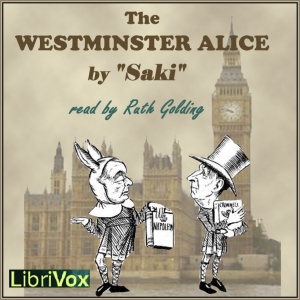
Published five years before John Kendrick Bangs had the same idea with Alice in Blunderland, Saki, in his 1902 series of satirical articles, takes an Alice in Wonderland view of British politics, which Alice finds even stranger than events in Wonderland.In all honesty, owing to its extremely topical nature this political satire hasn't worn well, which explains why it has virtually sunk without trace. To appreciate it at all, it's really rather necessary to understand the topical references. I am no historian, least of all a political historian, but I have researched it as well as I can, and made some notes in an attempt to put the events and characters into their political context for the listener. My notes may be found on the Internet Archive in audio form or in text form.I hope that this may still appeal to the political sceptic of today. With some basic understanding of the situation, I found the satire bitingly keen at points, and was left with the feeling that some aspects of British politics have changed little in more than a century, although current political satire sadly lacks Saki's wit. As the Red Queen says: "I don't know what business you have here, if you don't belong to the Cabinet; of course... there are so many of them, and they're mostly so unimportant that one can't be expected to remember all their faces." (Introduction by Ruth Golding)
12 episodes
Frederick Jackson Turner was an extremely influential U.S. historian, who is best known for his "frontier thesis", which proposed that American democracy was profoundly shaped by the existence of an undeveloped frontier area from the founding through the 1880s. He originally put forth his idea in the essay "The Significance of the Frontier in American History", published just three years after the frontier was "officially closed" in 1890. He continued to elaborate on the frontier thesis as well as the influence of sectionalism, and the unique contributions of the Midwest to American democracy. His theory and other writings are still debated by modern day historians. This work, The Frontier in American History, collects a number of Turner's essays and speeches, including "The Significance of the Frontier in American History."
44 episodes

In the early days of the penal colony at Sydney, rumour was rife among the convicts of another colony beyond the Blue Mountains and perhaps a route to China. In the hope of quelling the rumours, Governor John Hunter put together a bizarre exploration party, charged to travel as far into the interior as it could. The party consisted of four convicts, two guides and four soldiers to protect the guides from the convicts. The leader of the party was John Wilson, an ex-convict who had elected to live in the bush among the Aborigines, who had named him Bunboee. He was accompanied by John Price, Hunter’s adventurous young servant and, as the only literate member of the party, its diarist.
The party set out in January 1798, but three of the convicts soon tired and returned with the four soldiers, leaving Wilson, Price and Roe, the fourth convict, to press on to the south-west. After six days travel they reached high ground over the junction of the Wollondilly and Wingecarribee rivers, from where they saw the open country beyond the mountains. A month later, Wilson and Price, this time accompanied by Henry Hacking and a man called Collins, set out again and this time reached the summit of Mount Towrang, where they looked over the Great Divide.
John Price’s diaries of the two expeditions were handed over to Hunter, who gave them to Sir Joseph Banks in England. The diaries languished among Banks's papers for many years until they were acquired by the government of New South Wales, and published as an appendix to Volume III of the Historical Records of New South Wales in 1895. R. H. Cambage then meticulously traced the routes of the two journeys in a paper read to the Royal Australian Historical Society in 1919. Cambage mistakenly identified the author of the diaries as one 'Barracks' (hence his confusion when the name Price crops up in the diary), but John Price’s authorship and part in the expeditions was finally established in 1960 by A. H. Chisholm in The Romance of the Lyrebird, who credited Wilson with the discovery of the lyrebird.
My reading of Price's diaries and Cambage's commentary on them was inspired by Chris Cunningham’s The Blue Mountains Rediscovered, which sets out to scotch the myth that the ‘heroes’ Blaxland, Lawson and Wentworth were the first to cross the Blue mountains and look on the interior in 1813. They had probably been crossed several times before and I was pleased to discover that the leader of the first documented crossing was a Lancashire man, or at least a man who had made his way to Australia from the Wigan assizes, having been sentenced to transportation for the theft of nine yards of velveret to the value of tenpence. (Summary by Phil Benson)
3 episodes
Grégoire Hudry-Menos, modeste journaliste savoyard, apporte un nouveau point de vue sur l'histoire de la maison de Savoie, montée quelques années plus tôt sur le trône d'Italie. Ces «Études historiques» sont dédiées au roi Victor-Emmanuel II. - Summary by BeniaminoMassimo
5 episodes

Herein you will find much concerning those things which everybody knows about, but nobody knows — the things you have known about since childhood, and have been content to leave them at that, knowing little of what they are and still less where they are to be found. I have dealt mostly with the big things that London has in its keeping, such as the Domesday Book (can you tell me off-hand where it is to be seen ?); with the Confessor's Shrine (of the crowds who enter Westminster Abbey there is a big leaven who do not even know that it is there); with the massive fragments of London's Roman Wall that still survive; with that spot in Smithfield where martyrs burnt and English history was made; with the Duke of Suffolk's head and its dramatic story; with our Roman baths; with London Stone and odd others. … The City of London — the innermost "square mile" — is the richest ground for historical associations in all our world Empire, and the greater pity, therefore, that it should be unknown. (Summary from the author’s Preface, 1919.)
19 episodes
If you enjoyed Unknown London by this author, then you should love this one! Bell's light and novel exploration of specific topics in London's history make this easy to listen to and factual. Seventeen new topics are examined in this book, including Anne Boleyn's letter, tombstone stories, and St. Martin-Le-Grand. - Summary by Janet
18 episodes
The aim of this volume is to give a complete graphic account of the main features of the history of France to 1715 A.D., with as much additional illuminating detail as limited space permits. Besides outlines of the principal events, this narrative includes many biographical sketches, together with the anecdotes and sayings to which allusions are often made in literature, politics, and arts. It also gives such data in regard to places, public buildings, and works of art as the well informed like to have at their fingers' ends. (from the Preface)
91 episodes
“In publishing a popular edition of my work, Captain James Cook, R.N., F.R.S., it has, of course, been necessary to condense it, but care has been taken to omit nothing of importance, and at the same time a few slight errors have been corrected, and some new information has been added, chiefly relating to the disposition of documents.” - Summary by the author.
22 episodes
The fourth and final volume of Lea's monumental work on the Spanish Inquisition. This volume discusses how the Inquisition dealt with mysticism, solicitation of illicit relationships, bigamy, theological propositions, witchcraft and sorcery, political activity, and almost every other facet of daily life. It concludes with an overarching history of the Inquisition and retrospective. (Summary by TriciaG)
100 episodes
A series of letters on the early occupation of the colony, the Aborigines, etc addressed by Victorian pioneers to his Excellency Charles Joseph La Trobe Esq. , Lieutenant-Governor of the Colony of Victoria in response to a circular letter sent by him to a number of early settlers dated 29th July 1853. -
It cannot be claimed for these papers that they are infallible records of our early history at every point.
( from the preface),
The last section ends with lists of Aboriginal words and phrases as were collected by a lady. I'm in 2 minds about these, I respect her desire to keep a record but do not have any idea of their correctness, but they are there if anyone wants to have a go. And please remember that no one is saying the views in the letters are correct. (Annise)
59 episodes
The Constitution is the charter of government and the supreme law of the United States of America. It was signed by delegates to the Constitutional Convention in Philadelphia, Pennsylvania, on September 17, 1787. The first 10 amendments, known as the Bill of Rights, were ratified together in 1791. Amendments 11 through 27 were ratified separately from 1795 through 1992. (Summary by Laurie Anne Walden)
3 episodes
Sojourner Truth (born Isabella Baumfree) was born into slavery in 1797 (or thereabouts) in Swartekill, Ulster County, New York. This narrative, as told by Sojourner Truth to her friend Olive Gilbert, recounts to the best of her recollection what she and her family endured while they were the legal property of other human beings. These life experiences served as the catalysts for her becoming, in her later years, an outspoken abolutionist and women's rights activist. Her forgiving attitude toward those who once treated her and her loved ones with such cruelty is an example for all who would aspire to heal and move on from traumatizing life experiences. The voice of Olive Gilbert comes through in this narrative, and together, she and Sojourner Truth build a compelling case against slavery. - Summary by Holly Jenson
31 episodes
A 1973 U.S. government publication describing the history and physical characteristics of this Arizona national monument within the boundaries of the Navajo Nation. - Summary by david wales
3 episodes
These two publications put out by the U.S. government are about the Trinity site in New Mexico where in 1945 the first atomic bomb was tested. Each publication (about 1984 and about 1995) complements the other, though there is some duplication. These are descriptions of the test itself and of the planning and organization leading up to the test. They also tell what was done with the site after the test and how it became a national historic landmark. - Summary by david wales
2 episodes
Auguste Comte was from France and published this book in French in 1844. He made a very great impact on the sciences and claims to have “discovered the principal laws of Sociology." Comte says Reason has become habituated to revolt but that doesn’t mean it will always retain its revolutionary character. He discusses Science, the trade-unions, Proletariat workers, Communists, Capitalists, Republicans, the role of woman in society, the elevation of Social Feeling over Self-love, and the Catholic Church in this book. His goal is to replace theology with philosophy and develop the Religion of Humanity where Imagination is subordinate to Reason as Reason is to Feeling. Positivism can be summed up in this statements from his conclusion: “Love, then, is our principle; Order our basis; and Progress our end.” This is the 1908 edition of the book. - Summary by Craig Campbell
33 episodes
A collection of essays on Ireland compiled by Joseph Dunn and PJ Lennox. As stated in the Preface to the books "...we have been forced to the conclusion that the performances of the Irish race in many fields of endeavor are entirely unknown to most people, and that even to the elect they are not nearly so well known as they deserve to be. Hence there came to us the thought of placing on record, in an accessible, comprehensive, and permanent form, an outline of the whole range of Irish achievement during the last two thousand years." - Summary by KHand
39 episodes
These Russian tales span the time of Russia's founding in the 800s-900s all the way to the early twentieth century and are factually based, although particularly the older tales have become legendary. ( DrPGould)
39 episodes
This 1914 book gives a picture of the British Army structure and life in the early hours of World War I. Summary by david wales
11 episodes
Canada's past is more dramatic than any romance ever penned. . . . All that has been attempted here is such a story of the romance and adventure in Canada's nation building as will give the casual reader knowledge of the country's past, and how that past led along a trail of great heroism to the destiny of a Northern Empire. This volume is in no sense formal history. There will be found in it no such lists of governors with dates appended, of treaties with articles running to the fours and eights and tens, of battles grouped with dates, as have made Canadian history a nightmare to children. It is only such a story as boys and girls may read, or the hurried business man on the train, who wants to know "what was doing" in the past; and it is mainly a story of men and women and things doing. - Summary from the preface
47 episodes
This book gives an exciting account of Napoleon's rise to power. It opens with his humble beginning on the island of Corsica and ultimately emperor of over half of Europe. This book focuses on his victorious military campaigns, his disastrous Russian campaign, his exile to the island of Elba, his final loss at Waterloo, and his last days on the lonely island of St. Helena. Summary by pjcsaville.
10 episodes
Book Seven of the series focuses on the women of history and includes George Eliot, Joan of Arc and Madame Recamier. - Summary by KHand
22 episodes
This is the third and final volume of Isaac D'Israeli's monumental work Curiosities of Literature. It covers a great range of diverse topics, by no means limited to literature only, but also containing numerous essays on history, politics, and customs of English society. Therefore, this book will not only interest students of literature, but any reader should be able to find something matching his or her particular interests. - Summary by Carolin
62 episodes
April, 1865 -- The war ended and throughout the Northern States joy and relief reigned. Then, less than a week later, a thunderbolt: the president was dead -- struck down by an assassin's bullet. Could this have been the mad act of a single demented actor? Or was there a wider conspiracy to be rooted out? At this dark moment of national confusion, rage and despair, would the provisions of the Constitution and the procedures of established law be able to deal with the crisis -- or would extralegal methods be needed? Summary by Delmar H. Dolbier
17 episodes
Description. History. “… those who read this book and have no opportunity of visiting the Tower expect that the characters in the moving drama of its history shall have some semblance of life as they walk across the stage…. My wish has been to persuade those who come to visit the Tower that there is a great deal to be seen in its immediate vicinity… A noble and historic building like the Tower resembles a venerable tree whose roots have spread into the soil in all directions, during the uncounted years of its existence, far beyond the position of its stem.” - Summary by Book Preface and David Wales
10 episodes
An ironic history of British criminals, mostly pre-Victorian pickpockets, highwaymen and thieves. Here we meet Moll Cutpurse the Queen of thieves, Jonathan Wild the Thief-taker General, Captain Hind the gallant highwayman and many others. The book begins with an essay on the artistic achievements of thievery followed by a sequence of short biographies. Summary by Greg Lewin
24 episodes
A Short History of Wales is a book published in 1906 by Owen Edwards. It aimed to provide an introduction to Welsh history, to those who may not have previously dealt with the subject. -Summary by Anonymous
25 episodes
Continuing the Beacon Lights of History Series, Mr. Lord discusses important European Statesmen Mirabeau, Edmund Burke, Napoleon, Prince Metternich, Chateaubriand, George V, and Louis Philippe. Also discussed is the Greek Revolution. (Summary by KHand)
21 episodes
“[these essays on Shakespeare, Pepys, Restoration novels, and bohemianism]—the results of many hours of quiet but rather aimless browsing among books, and not of special investigations, undertaken with a view to definite scholastic ends. They are, moreover, as will readily be seen, completely unacademic in style and intention.” Published in 1897. Hudson (1841-1922) was a prolific author, naturalist, and ornithologist. His most popular book in the early 20th century was Green Mansions.
9 episodes
A brief history of France from the early 800AD to the 1870s, focusing on the successive heads of state and the different wars which shaped France into the country it was by the time of the book's publication (late 19th century). Summary by Adele Pooley
8 episodes






